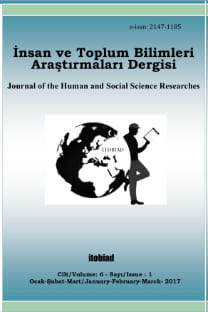Separatist Entities-Unrecognized Republics In South Caucasus After Disintegration of Soviet Union (Hıstorıcal-Legal Analysıs)
The Soviet Union, South Caucasus, separatist entities, so called “Abkhazia Republic”, so called “Nagorno-Karabakh Republic”, so called “South Ossetia Republic”
Separatist Entities-Unrecognized Republics In South Caucasus After Disintegration of Soviet Union (Hıstorıcal-Legal Analysıs)
The Soviet Union, South Caucasus, separatist entities, so called “Abkhazia Republic”, so called “South Ossetia Republic”, so called “Nagorno-Karabakh Republic”,
___
- 1. Azərbaycan Sovet Sosialist Respublikasının Konstitusiyası, Bakı 1937.
- 2. Azərbaycan Sovet Sosialist Respublikasının Konstitusiyası, Bakı 1978. 3. Abhazya tarihi http://abhazya.org/wp/?page_id=292(accessed 23/01/2015)
- 4. “Abhazya ve Gürcüstan Arasındaki Ateşkes Antlaşması, 1994” http://www.pro-abkhazia.eu/15.Mayis.1994.Moskova.Antlasmasi.html (accessed 12/02/2015)
- 5. Araz Aslanlı, Cavid Veliyev. “Güney Kafkasya: Toprak Bütünlüğü, Jeopolitik Mücadileler ve Enerji”, Berikan yayınları, İstanbul, 2011.
- 6. “Act of State Independence of The State of Abkhazia” http://www.kapba.de/StateDeclaration.html (accessed 12/02/2015)
- 7. Əlikram Tağıyev, Fəlsəfə, Dərslik, Bakı 2012, 382 s.
- 8. Kamil Ağacan.“Saakaşvili’nin Güney Osetya Operasyonu: Bir Hipotezin Tezi”, Stratejik Analiz, Cilt:5, Sayı:54, Ekim 2004.
- 9. Helge Blakkisrud and Pal Kolsto. “Living with Non-recognition: State and Nation building in South Caucasian Quasi-states”, Europe-Asia Studies, Vol: 60(3), 2008.
- 10. Saynur Giray Bozkurt. “Gürcistan’daki Etnik Çatışmalar Karşısında Türkiye ve Rusya’nın Tutumu”, Karadeniz Araştırmaları, Sayı: 19, Güz 2008.
- 11. Nina Caspersen. “Unrecognized States: The Struggle for Sovereignty in the Modern International System”,UK: Polity Press, 2012.
- 12. Svante E. Cornell. “The Nagorno-Karabakh Conflict”, Report No.46, Department of East European Studies, Uppsala University, 1999.
- 13. Bilal Dədəyev, Ceyhun Mahmudlu, Şamxal Əbilov, “Qarabağ 99 sualda”, Bakı, 2014.
- 14. Charles H. Fairbanks. “Weak States and Private Armies”, Beyond State Crisis?: Post-Colonial Africa and Post-Soviet Eurasia in comparative perspective, Ed. by. M.Beissinger and M. Crawford Young, USA: Woodrow Wilson Center Press, 2002.
- 15. Niall M Fraser et all. “A Conflict Analysis of the Armenian-Azerbaijani Dispute”, The Journal of Conflict Resolution, Vol. 34, No. 4, December 1990.
- 16. James Hughes, Gwendolyn Sasse. “Comparing Regional and Ethnic Conflicts inPost-Soviet Transition States: An Institutional Approach”, ECPR Joint Sessions, Grenoble, Workshop 2, 7-11 April 2001.
- 17. Emre Irdam. “De Facto Independent States in the Post-Soviet Territory: A Comparative Study of Transnistria and South Ossetia”, European Consortium for Political Research(ECPR), Graduate Student Conference, 2012.
- 18. Robert Jackson. “Quasi-States: Sovereignty, International Relations and the Third World”, Cambridge: Cambridge University Press, 1990.
- 19. Dağlık Karabağ Sorunu”, BİLGESAM, Rapor : № 37, İstanbul, Ekim 2011, s. 5.
- 20. Charles King, “The Benefits of Ethnic War: Understanding Eurasia's Unrecognized States”, World Politics 53, July, 2001.
- 21. Pal Kolsto.“The Sustainability and Future of Unrecognized Quasi-States”, Journal of Peace Research, Vol. 43, No. 6, Nov., 2006.
- 22. Dov Lynch. “Managing separatist states: a Eurasian case study”, Institute for Security Studies,Western European Union, Occasional Papers No 32, November 2001.
- 23. Dov Lynch. “Separatist States and Post Soviet Conflicts”, International Affairs 78(4), 2002.
- 24. Yaqub Mahmudov, Kərim Şükürov. “Qarabağ: real tarix, faktlar, sənədlər”, Bakı, 2005.
- 25. Montevideo Convention on the Rights and Duties of States. http://www.ilsa.org/jessup/jessup15/Montevideo%20Convention.pdf (accessed 05/12/2014)
- 26. Österud Öyvind.“The Narrow Gate: Entry to the Club of Sovereign States”, Review of International Studies, Vol. 23 (2), 1997.
- 27. Scott Pegg. “De Facto States in the International System”, Institute of International Relations of the University of British Columbia,Working Paper No. 21, February 1998.
- 28. Scott Pegg.“International Society and the De Facto State”, Aldershot, UK: Ashgate, 1998.
- 29. Radboud Reijn. “An analysis of the effectiveness of state function in de facto states”, International School of Humanities and Social Sciences, Conflict Resolution and Governance, Master’s Thesis, Universiteit van Amsterdam, Amsterdam, the Netherlands, September 2009.
- 30. Levent Şen. “Soğuk Savaş Sonrası Türkiyenin Güney Kafkasya politikası”, Atılım Üniversitesi, Sosyal Bilimler Enstitüsü, Yüksek lisans tezi, Ankara 2008.
- 31. Ufuk Tavkul. “Etnik Çatışmaların Gölgesinde Kafkasya”, İstanbul, Ötüken Yayınları, 2002.
- 32. The Constitution of Union of Soviet Socialist Republics, 1936.
- 33. The Constitution of Union of Soviet Socialist Republics, 1936, Article 17
- 34. The Constitution of Union of Soviet Socialist Republics, 1936, Article 89
- 35. The Constitution of Union of Soviet Socialist Republics, 1977, Article 86
- 36. The Constitution of Union of Soviet Socialist Republics, 1977, Article 87
- 37. The Constitution of Union of Soviet Socialist Republics, 1977, Article 85
- 38. The Constitution of Union of Soviet Socialist Republics, 1977, Article 78
- 39. The Constitution of Union of Soviet Socialist Republics, 1977, Article 79
- 40. Raul Toomla.“De facto states in the international system: Conditions for (in-)formal engagement”, Doctor Dissertation, Institute of Government and Politics, University of Tartu, Estonia, 2013.
- 41. Vladimir Kolossov and John O’Loughlin. “Pseudo-states as harbingers of a post-moderngeopolitics: The example of the Trans-Dniester Moldovan Republic (TMR)”, ed. by David Newman, “Boundaries, Territory and Postmodernity”, London: Frank Cass, 1999.--39
- 42. Merve İrem Yapıcı. “Kafkasya'nın Sorunlu Bölgesi: Güney Osetya”, Orta Asya ve Kafkasya Araştırmaları Dergisi (OAKA), Cilt:2, Sayı:3, USAK Yayınları, 2007.
- 43. Zinaida Shevchuk, “Georgian conflicts – South Ossetia” http://is.muni.cz/el/1423/podzim2013/MVZ208/um/43679852/?lang=en (accessed 12/02/2015)
- 44. http://mfaapsny.org/en/ (accessed 26/01/2015) Ministry of Foreign Affairs Republic of Abkhazia
- 45. http://www.crisisgroup.org/~/media/files/europe/205%20south%20ossetia%20%20the%20burden%20of%20recognition.ashx (accessed 26/01/2015 ) International Crisis Group, “South Ossetia: The Burden of Recognition”, Report No 205, 7 June 2010.
- 46. http://www.crisisgroup.org/~/media/files/europe/166_nagorno_karabakh_viewing_the_conflict_from_the_ground.pdf (accessed 13/02/2015) International Crisis Group, Nagorno-Karabakh: Viewing The Conflict From The Ground, Europe Report No 166, 14 September 2005.
- ISSN: 2147-1185
- Yayın Aralığı: 4
- Başlangıç: 2012
- Yayıncı: Mustafa SÜLEYMAN ÖZCAN
Patrick Ness’in Canavarın Çağrısı Eserinin Rizom Analizi
Şennur DEMİR, Nadide KARAMEMİŞ
Zaur MAMMADOV, Nurlana MELIKLI
Bulanık Ahp ve Bulanık Hedef Yaklaşımı ile Hammadde Tedarikçisi Seçimi
Iran Milliyetçi Tarihyazımının Gözden Geçirilmesi ve Yeni Entelektüel Alanın Oluşumu
Emeğin Görsel, İşitsel ve Yazınsal Sanatlardaki Tezahürleri
Görsel Sanatlar Eğitiminde Okul Dışı Öğrenme Ortamları: Safranbolu Örneği
